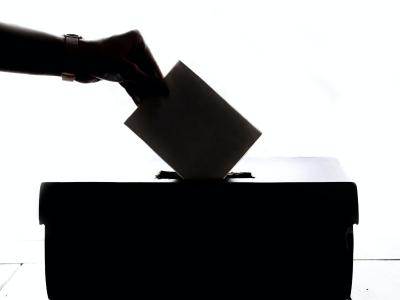The federal Conservatives continue to increase their support in Manitoba ahead of an anticipated election in 2025. Today, more than one-half of decided and leaning Manitoba voters would cast a ballot for Pierre Poilievre and his party (52%, up from 50% in September and 39% at the last federal election).
Support for incumbent prime minister Justin Trudeau and the Liberals continues to erode, with fewer than one in five now planning to vote for this party (19%, -2% vs. September). Support for Jagmeet Singh and the NDP remains unchanged at 24 per cent, with two per cent each favouring the Green Party or the People’s Party of Canada (PPC). Overall, 16 per cent of those surveyed are undecided.
Conservative growth within Winnipeg will put additional pressure on the Liberals as they seek to defend four seats in suburban areas. Today, more than four in 10 urban voters plan to cast a ballot for Poilievre and the Conservatives (43%, +3% vs. September), with three in 10 preferring the NDP (29%, -1%) and fewer than one-quarter opting for the Liberals (24%, -2%). The Liberals are somewhat competitive with the Conservatives in inner suburban areas (which includes its Winnipeg South Centre stronghold and parts of St. Boniface-St. Vital) but are well back in the outer suburbs. The NDP holds a commanding lead in the inner city.
Outside Winnipeg – where the Conservatives won five of six seats by comfortable margins in the last election – nearly two-thirds now plan to vote for this party (65%, +2% vs. September). Seventeen per cent would vote for the NDP (+1%) and only 12 per cent would vote Liberal (-2%).
The Conservatives have a significant lead across all age groups. Even one-half of younger voters prefer this party. Younger men are much more likely to prefer the Conservatives, with women under the age of 55 more likely to be split between the Conservatives and the NDP. Older women, meanwhile, are slightly more likely to favour the Conservatives, but three in 10 would still cast a ballot for a Liberal candidate – which is a much higher share than among other demographic groups.
The Conservatives also have a relatively high level of support among Racialized and Indigenous voters, although the proportion of these Manitobans who plan to vote for the federal NDP is slightly higher than it is among the non-racialized, white population.
The Story
National polls show Pierre Poilievre and the Conservatives could win a huge majority in the upcoming election. Although Manitoba’s 14 seats count towards a tiny fraction of the seats up for grabs in the next Parliament, one might expect the party to pick up more seats in Winnipeg when voters go to the polls in 2025. Based on the current results, the Conservatives appear to be in a strong position in suburban seats like Winnipeg South and St. Boniface-St. Vital (where incumbent Liberal cabinet minister Dan Vandal is not running again). The Conservatives should also be highly competitive in the three other urban seats they do not currently represent: Liberal-held Winnipeg South Centre and Winnipeg North, and NDP-held Elmwood-Transcona.
After being powered by younger voters in previous elections, Liberal support has collapsed, especially among younger and middle-aged men. These voters have flocked to the Conservatives, with only older voters over the age of 55 somewhat more likely to stay with this party. The Conservatives’ high level of support among Indigenous and Racialized Manitobans will make it challenging for the Liberals or the NDP in urban and suburban seats where larger concentrations of these voters live.
Disclosure Statement
Probe Research is a member of the Canadian Research Insights Council (CRIC) and confirms that this research fully complies with all CRIC Standards including the CRIC Public Opinion Research Standards and Disclosure Requirements. Learn more at: https://www.canadianresearchinsightscouncil.ca/standards/por/
Methodology
Probe Research surveyed a random and representative sampling of 1,000 adults residing in Manitoba between November 26 and December 10, 2024.
With a sample of 1,000, one can say with 95 per cent certainty that the results are within ± 3.1 percentage points of what they would have been if the entire adult population of Manitoba had been surveyed. The margin of error is higher within each of the survey’s population sub-groups.
The sample consists of 483 Manitobans randomly recruited via live-agent operator; 311 randomly recruited via Interactive Voice Response (IVR) and 206 members of Probe Research's online panel. All respondents completed the survey on an online platform.
Modified random digit dialing, including both landline and wireless numbers, ensured all Manitoba adults had an equal opportunity to participate in this Probe Research survey.
Minor statistical weighting has been applied by age, gender and regional and educational attainment so that the sample properly reflects the province’s population, based on Census data.




